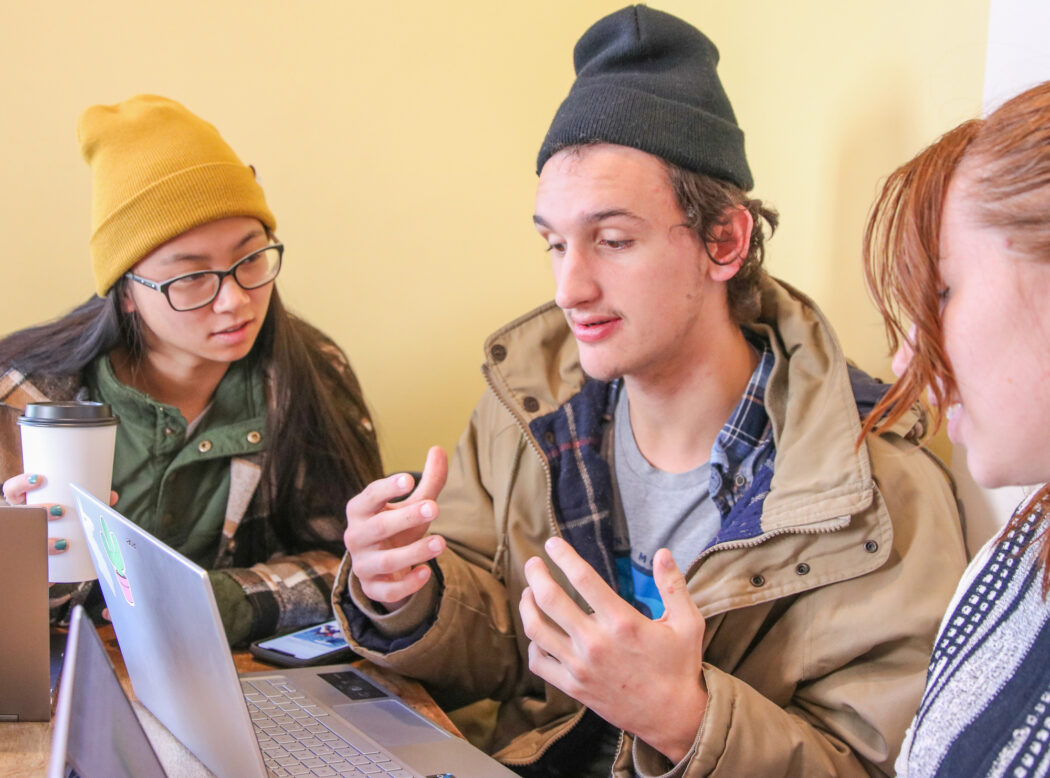The benefit to USU online programs
Audio Player*Audio clip is the voice of Ramy Shaaban, HEDI program coordinator.
Utah State University offers a variety of options for online degrees.
The options include associates, bachelor’s, master’s and doctorate degrees. They also offer undergraduate and graduate certificates, along with professional licensures.
Michelle Wilson is an advisor at Utah State University who has seen the benefit of online degrees.
“It’s really beneficial for those who have life events or circumstances which may preclude in-person attendance,” she said. “The pandemic helped with students’ attitudes towards online and also helped them to be a little bit more successful.”
Wilson advises for the communicative disorders and deaf education program, and she previously advised for the human experience design and interaction major. Both of these majors can be earned fully online.
Andrew Walker, the department head of instructional technology and learning sciences, has also seen the value of an online degree.
“What’s really touching to me is hearing stories about people having access to degrees that they wouldn’t otherwise have access to,” he said. “That could be because of geography, but could also be because of time constraints.”
Brian Champagne is a journalism professor who has adapted his multimedia boot camp class to reach online students since the journalism major can be completed online.
He has also seen the benefit of the flexibility provided in an online class.
“They can choose to watch a lecture at 2 a.m. or whatever works for them,” he said. “I think it’s great it can be that flexible for them.”
Many of the faculty worry students are not able to connect to the content or other students when it is online. They also worry about the isolation this may cause.
In Champagne’s class, students shoot videos throughout the semester. In the in-person class, they can talk to him about their plans and get ideas and tips before they go take the videos. This does not happen as often in his online class.
“I’m trying to adapt, like Zoom with a shared screen,” he said. “We’ll watch you for a couple of minutes and see if we can speed you up.”
Ramy Shaaban, a professional practice assistant professor for instructional technology and learning sciences and coordinator of the HEDI program, tries to “gamify” his courses.
He has done this in the HEDI program through discussions, group work, and continuous motivation or rewards in class.
“Online learning is sometimes boring, and sometimes you need to have more involvement with an instructor,” he said. “We try to overcome these challenges with good design of the course.”
Over 70,000 people have utilized the online degree options, including students from 50 states and 55 countries.
The online program allows the university to reach more students and work with more faculty. Champagne teaches students in Logan, other parts of Utah, Missouri and Italy. The HEDI program has a faculty member located in California.
The online programs have also earned a variety of awards in 2021. The U.S. News and World Report ranked it 21st in the nation for best online bachelor’s program, 12th in online bachelor’s for veterans and 8th in online undergraduate psychology program.
-Carter.Ottley@usu.edu
Featured photo illustration by Claire Ott

